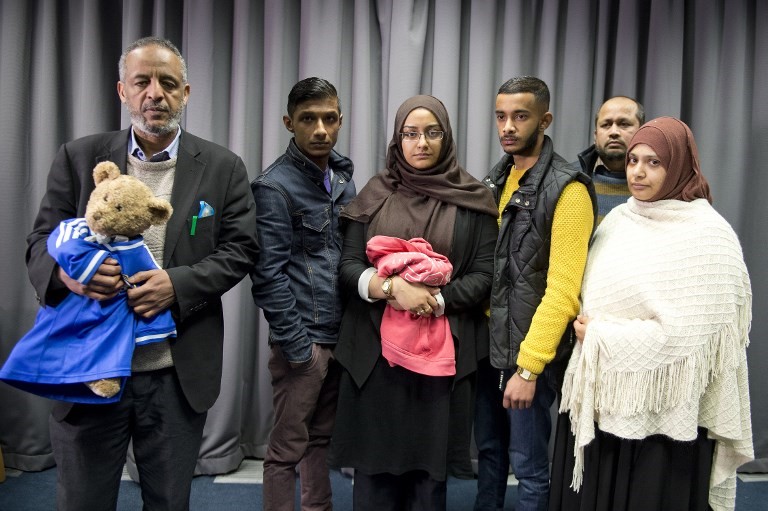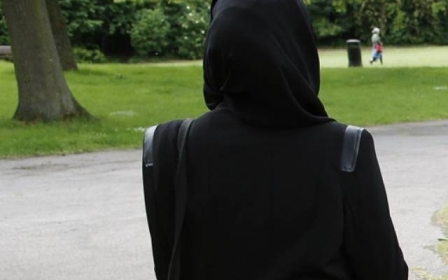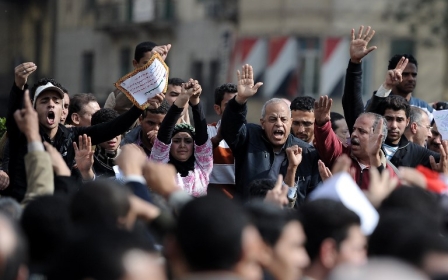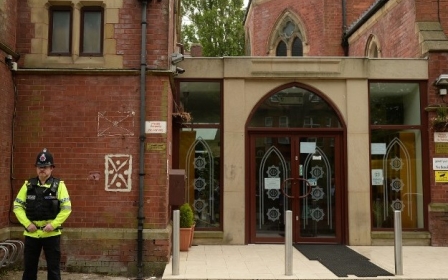Why Britain should bring Shamima Begum home
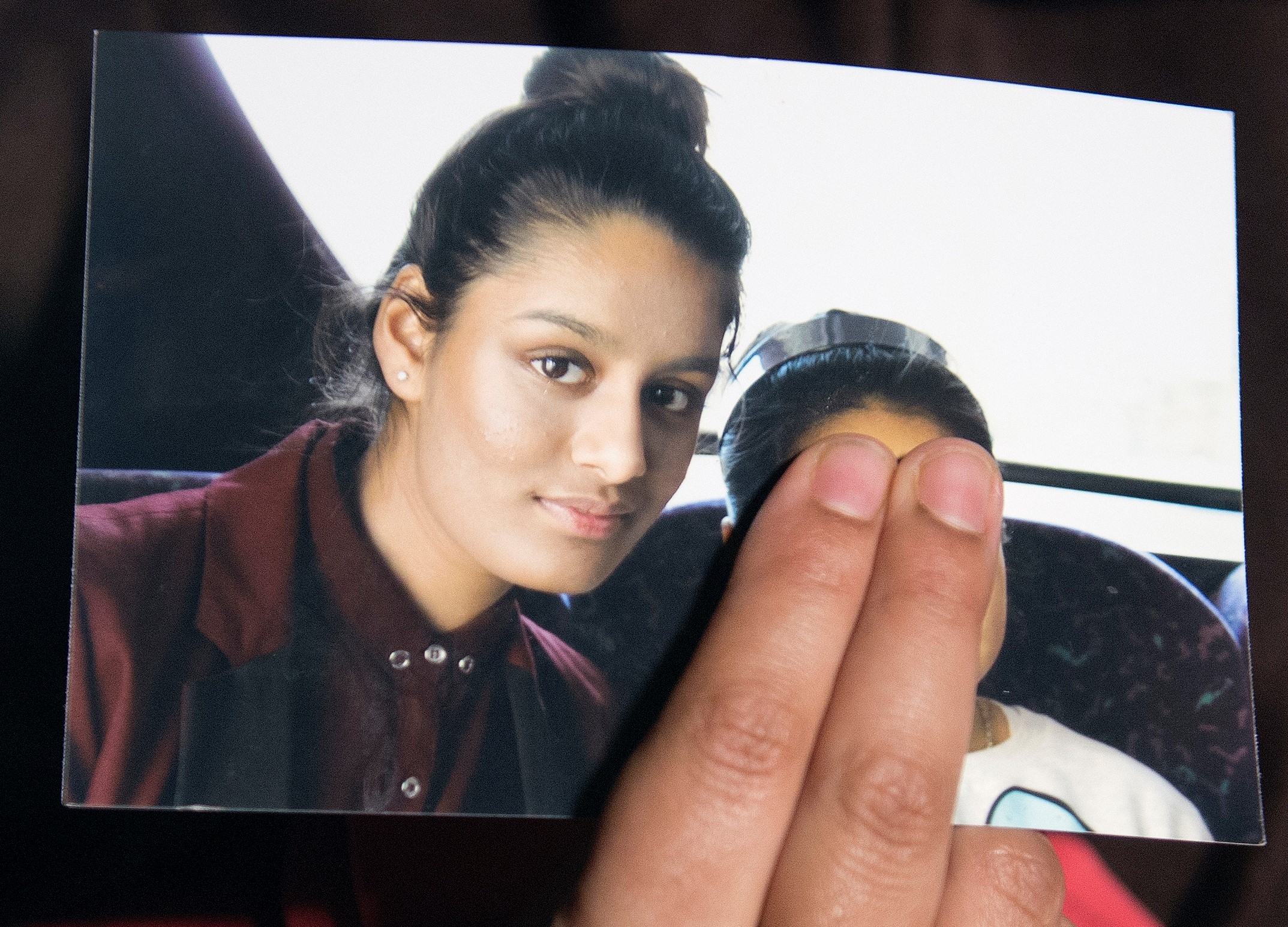
Shamina Begum is back in the headlines, having left with two other young teenagers from London’s East End to join the ranks of the Islamic State (IS) in 2015.
She is now pregnant with her third child, stuck in a camp in Syria, and asking to be brought home. Her journey is over – and while she remains unrepentant about her actions, there is a legal and moral argument that needs to be expanded to fully ascertain the virtues of taking her back.
Firstly, she is a British citizen and has certain rights under the law, even if she might have abrogated her responsibilities as a 15-year old ready to start a new life in a warzone.
These rights mean that it is incumbent upon the British state to come to terms with the reality of her situation: Begum is asking for help at a critical time, sensitive to not losing a third child, and mindful of her family in England, who have waited for this moment since the day she left.
Obliged to investigate
New MEE newsletter: Jerusalem Dispatch
Sign up to get the latest insights and analysis on Israel-Palestine, alongside Turkey Unpacked and other MEE newsletters
UK authorities are therefore obliged to investigate the case fully, and if there is merit in bringing her back, she must be allowed that opportunity – especially if it is determined, and this seems to be the case thus far, that she did not engage in any fighting or participate in the deaths of others.
This is not to deny agency in choosing their actions to the women who joined IS, but the reality is that often, these young women are fundamentally removed from the front lines, taking a backseat as the men attempt to push forward on the battleground.
How can we find effective ways of channelling Muslim youth who have strong Islamist beliefs into a positive approach?
The moral case rests on the wider question of what we can learn from her departure, what exactly happened in Iraq and Syria during those tumultuous years during the rise and fall of IS, and how this can better inform policymakers on issues relating to the process of radicalisation among British-born Muslims.
Government and academic researchers have been exploring this matter for considerable time, but there are still numerous questions in play. Why are some young people, challenged by issues of identity, belonging and nationhood, prepared to remove themselves from their lived realities and seek an alternative vision of the world – and their place within it – while the vast majority choose not to?
How can we fully appreciate the interactions within the home and local community, the wider national political climate, and the role of geopolitics in assessing these instances?
Cultural engagement
How can we find effective ways of channelling Muslim youth who have strong Islamist beliefs into a positive approach – that is, through political and cultural engagement, community action and information dissemination?
Such methods actively take on bigotry and Islamophobia through education, awareness-raising and informed debate, rather than retreat, disengagement and ultimately withdrawal from society.
The other element of the moral argument is that allowing Begum to return is the right thing to do.
Much of the IS recruitment process is aimed at grooming young people who were searching for meaning in their lives. Especially important in this context is the notion that Britain is somehow not home to Muslims – that Muslims are rejected, subjugated and oppressed by a system of governance, economics and politics that renders Britain the “land of the unbelievers”; a decadent, corrupt and xenophobic country that is racist and discriminatory to the core.
Preventing Begum from returning partially confirms the message of the radicalisers, and could act as a recruiting motif for others who also feel dislocated.
A further upside of bringing her back, apart from learning from her experiences, is to eventually involve her in a counter-narrative campaign that aims to divert others from contemplating similar choices. From her interviews, Begum appears to be a strong, articulate and clear-minded individual, even though she is still a teenager with the rest of her life ahead of her.
Sending a message
While it is important not to underestimate the significance of female jihadis in their pursuits of a different vision of the world, and what this could mean for the risks of extremism and violence, we should not overestimate the reality of the situation for a young, vulnerable person seeking to determine their own path forward.
Think of how a measured - rather than knee-jerk and politically driven - response by the authorities could counter the primary message of the radicalisers, potentially preventing countless others from considering or even planning a similar move. Britain can take advantage of such instances to demonstrate how much better it is than others would have us believe.
By bringing Begum back, policymakers could draw a clear line underneath the saga, sending a message to the world – but also to the likes of IS – that in spite of its faults, Britain is better than it has been portrayed.
We can all learn from this as we continue to struggle with how to prevent such problems from arising in the first place.
The views expressed in this article belong to the author and do not necessarily reflect the editorial policy of Middle East Eye.
Middle East Eye delivers independent and unrivalled coverage and analysis of the Middle East, North Africa and beyond. To learn more about republishing this content and the associated fees, please fill out this form. More about MEE can be found here.



